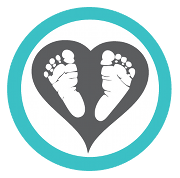"Psychological violence during pregnancy by an intimate partner is strongly linked to postnatal depression, independent of physical or sexual violence." Study coordinator Dr. Ana Bernarda Ludermir, PhD (Brazil) said, "We need to understand more about why psychological violence occurs and develop interventions to prevent it from occurring, as well as treatments to reduce its impact."The National Coalition Against Domestic Violence gives the following examples of psychological abuse:
She added that prenatal care could provide an opportunity to identify women at risk. "Currently, we place emphasis, and rightly so, on preventing and treating physical violence, but psychological violence is also a serious problem, as this study shows," she says. "Interventions that might prevent psychological violence or help treat its consequences could reduce the substantial burden of postnatal depression that affects mothers, children, and the healthcare system as a whole."
"...In an accompanying editorial, Rachel Jewkes, MD, from the Medical Research Council, Pretoria, South Africa, writes that emotional abuse probably has a greater importance in women's mental ill-health than originally thought, "and should therefore receive more attention from researchers and health services."
She adds that the high prevalence of postnatal depression reported in the study "shows the great need for improved mental health care."
Finally, Dr. Jewkes points out that emotional abuse screening in pregnant women is not currently recommended by official bodies, such as the American Congress of Obstetricians and Gynecologists, but suggests that it should be.
There is mounting evidence, she writes, "that guidelines should include questions about emotional abuse, as well as physical and sexual abuse. Prevention of all forms of intimate partner violence is very important for improving women's health, particularly their mental health." (Medscape Medical News).
· Denying the victim access to money or economic support.
· Harassing the victim at work or school.
· Threatening to injure, permanently disfigure, or kill the victim and/or loved ones.
· Damaging the victim’s property.
· Preventing the victim from eating, sleeping, or leaving her place of residence.
· Threatening or physically abusing the family pet.
National Domestic Violence Hotline 1-800-799-SAFE
Statewide Domestic Violence Info-line (24 hrs/day) 1-800-897-LINK (5465)
Read more about this important subject here. A good book is Why Does He Do That?: Inside the Minds of Angry and Controlling Men by Lundy Bancroft.























No comments:
Post a Comment
This blog only reviews comments before posting to avoid hijacking. We will respond to comments Mon-Thurs but we are closed Fri-Sun and legal holidays.